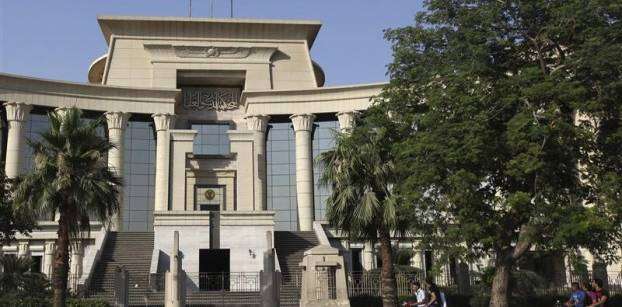Supreme Constitutional Court to rule on protest law articles in December

Egypt's Supreme Constitutional Court (SCC) - Reuters
CAIRO, Oct 1 (Aswat Masriya) - Egypt's Supreme Constitutional Court (SCC) is scheduled to issue its ruling regarding the constitutionality of articles 7 and 19 of the controversial protest law on December 3.
Two lawsuits were filed with the SCC, the first appealing articles 7 and 19 of the protest law, while the second appealed articles 8 and 10.
The SCC is set to continue reviewing the other two articles in its session on Nov. 5.
The articles under appeal include article 8 which sets a time limit of 15 days at the most for notifying the authorities of a future protest, and article 10 that gives the interior minister the power to cancel protests ahead of their scheduled date.
Meanwhile, articles 7 and 19 address actions that are already penalised by the Penal Code and the Arms and Ammunition Act including the possession of arms and disrupting transportation, according to the Egyptian Center for Economic and Social Rights (ECESR).
The widely criticised protest law was issued in November 2013 by then Interim President Adly Mansour amid a tense political environment characterised by recurrent protests.
Since its adoption, hundreds have been handed down prison sentences and/ or hefty fines for violating the law and protesting without obtaining prior approval from the interior ministry.
Rights groups repeatedly condemned the law, describing it as an encroachment on the right of assembly, and the freedom of expression.
Upon the adoption of the law, Amnesty International described it as "placing broad restrictions on protests in Egypt," and "a serious setback that poses a grave threat to freedom of assembly and gives security forces a free rein to use excessive force, including lethal force, against demonstrators."
In Sept 2014, the ECESR filed one of the lawsuits mentioned above, appealing articles 8 and 10 of the protest law, and suggested several amendments to the law in its current format.
Suggested amendments include handing the governor the authority to issue executive decisions regarding protests instead of the interior minister, and giving the administrative court supervisory authority over the governors' decisions.
ECESR also stated that breaking up gatherings should be "gradual and without using legal force."
Article 73 of Egypt's constitution states that "citizens shall have the right to organize public meetings, marches, demonstrations and all forms of peaceful protests, without carrying arms of any kind, by serving a notification as regulated by Law..The right to peaceful and private assembly is guaranteed without need for prior notification. Security forces may not attend, monitor or eavesdrop on such meetings."









facebook comments